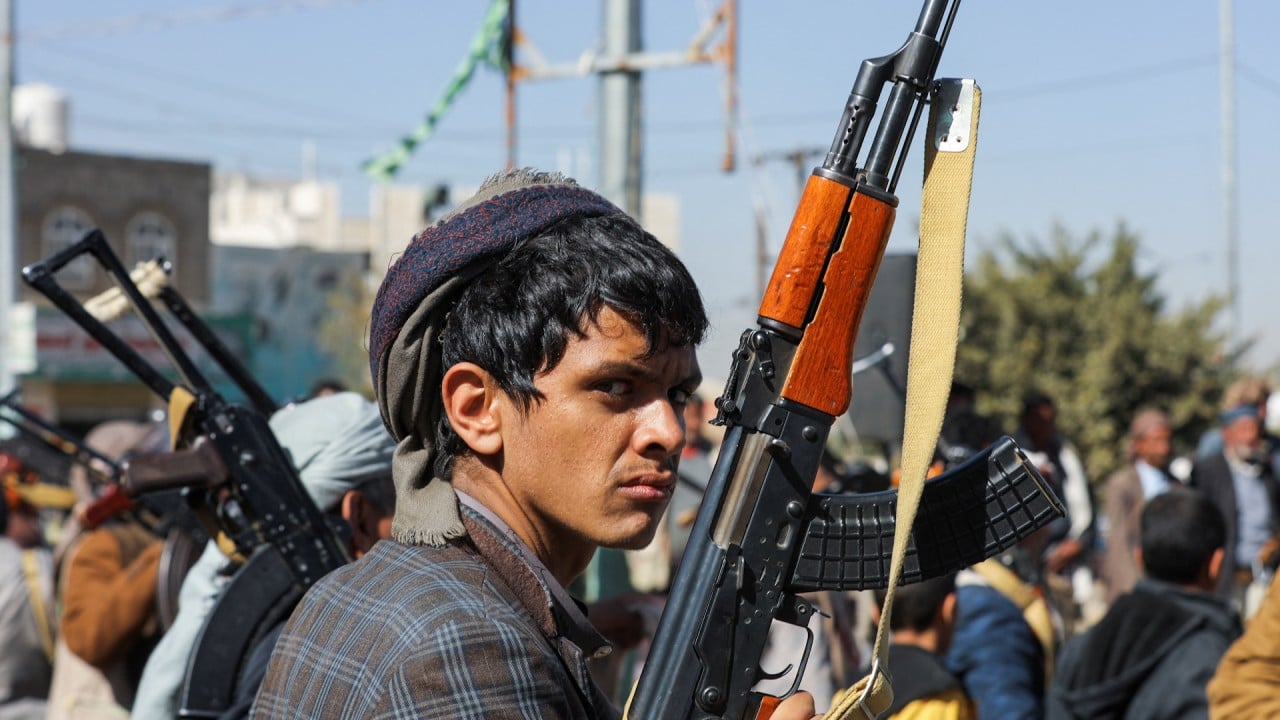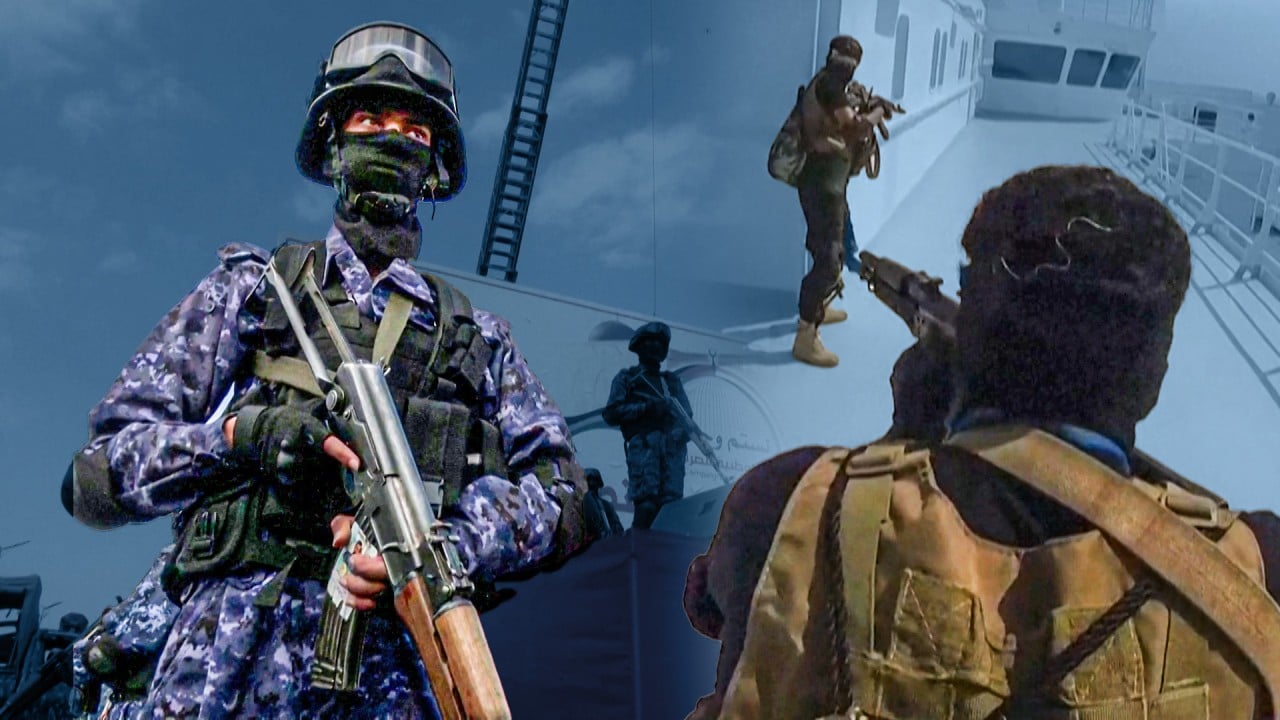US tipped to press China on Houthi Red Sea attacks in talks in Thailand
White House National Security Council spokesman John Kirby said this week that China had influence over Tehran and the ability to “have conversations with Iranian leaders that we can’t”.
“And so, what we’ve said repeatedly is: we would welcome a constructive role by China, using the influence and the access that we know they have, to try to help stem the flow of weapons and munitions to the Houthis,” Kirby said.
Jeremy Chan, a senior analyst at Eurasia Group, said the meeting between Sullivan and Wang was an elevation of lower-level US diplomatic outreach to ask China to use its leverage over Iran to rein in the Houthis.
The two-day meeting in Bangkok would largely be focused on the Red Sea attacks, where the US hoped there may be “a rare opportunity for collaboration … in resolving a global hotspot issue”.
China has yet to formally condemn the Houthis or mobilise its forces to safeguard commercial interests in the key maritime corridor, a position analysts attributed to China’s reluctance to be embroiled in a Middle East conflict.
While China’s ships have not been attacked by the Houthis, Chinese shipping firms including Chinese state-owned giant Cosco have suspended transits through the area.
Yet, despite rising costs for Chinese companies, Beijing had been reluctant to mediate, Chan said.
“Instead, Beijing has preferred to blame the Houthi attacks on the Israel-Gaza conflict and criticise the US and UK air strikes against Houthi positions in Yemen as only adding fuel to the fire,” he said.
“The key question is whether Sullivan can convince Wang to change China’s position, and what concessions Beijing might demand from Washington in return.”
Wang Yiwei, an international relations professor at Renmin University in Beijing, said that during the meeting with the Chinese foreign minister, Sullivan would seek to characterise the Houthi attacks as a sort of “violent terrorism”.
But China – even as it supported globalisation and trade security – still viewed the attacks as a product of the Israel-Gaza conflict.
Washington would also want to persuade Beijing to support its resolutions proposed at the United Nations Security Council, with hopes that China could later influence Russia, Wang Yiwei added.
The UN Security Council – with Britain, China, France, Russia and the United States as its permanent members – is deadlocked on the Israel-Gaza conflict.
Eurasia Group’s Chan said China believed the Houthi attacks were a “spillover” from the Israel-Gaza war and so Beijing would likely demand Washington lift its opposition to calls for an immediate ceasefire in Gaza.
Chan said that given China’s interests in the Middle East region lay with Gulf states, Beijing would likely continue to take cues from countries in the region.
“Given these dynamics, Sullivan’s time might be better spent speaking to Saudi Arabia and the United Arab Emirates than China,” he said.
Still, with Washington and Beijing seeking to improve ties following the landmark meeting between Chinese President Xi Jinping and his American counterpart Joe Biden late last year, Chan said Beijing would want to “maintain the warming trends” in relations and not completely rebuff Sullivan’s request.
China, he suggested, could make “nominal gestures” to appease Washington but it was unlikely to offer firm commitments to ease the conflict.
Chong Ja Ian, a professor of political science at the National University of Singapore, said he expected Sullivan and Wang to “find areas where they can coordinate if not collaborate” as both countries have an interest in maintaining the safety of shipping in and around the Red Sea.
He noted that Beijing also had an interest in stability and security in the Middle East. But Beijing might have to weigh the leverage it had on Tehran with how much political capital it would cost to put pressure on Iran.
“Currently, [China] is enjoying whatever safeguards to shipping in the Red Sea area that the US and its allies are extending. That may provide Washington with some leverage.”
Chong suggested China might offer “some action” to deal with the Houthi attacks. “But to be very clear, China has important interests in the Red Sea region and the Middle East. It is not simply doing charity.”

